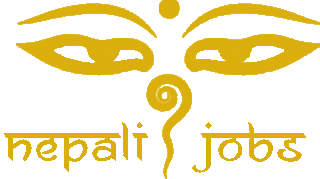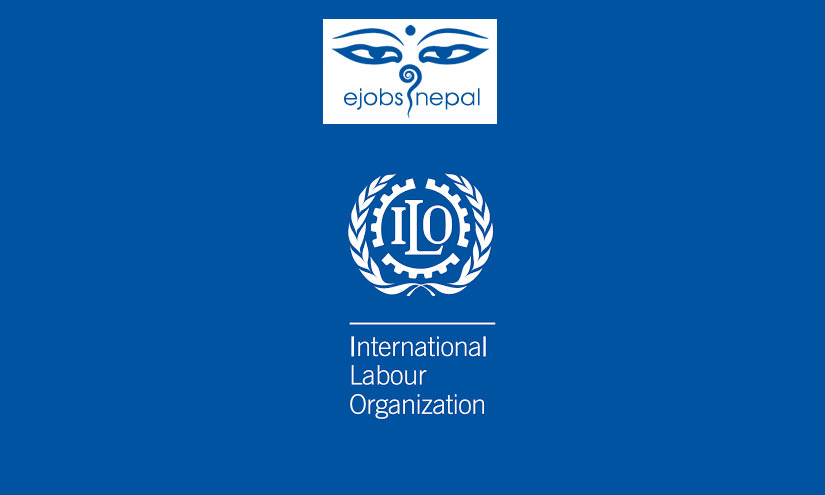VACANCY ANNOUNCEMENT
Organization: ILO – International Labour Organization

Vacancy No: KATHMANDU/2017/01
Title: Project Manager, Skills for Employment Programme
Contract type: Fixed-term Appointment
Duration of contract: One year (with possibility of renewal)
Duty Station: Kathmandu, Nepal
Salary (Grade: P.4)
Minimum: US$ 70647 – Rising to Maximum: US$ 89090
Post adjustment for Kathmandu: Minimum: US$ 17591 – Maximum: US$ 22184
For any questions related to this post, please contact Mr Richard Howard, [email protected]
Under article 4.2, paragraph (e) of the Staff Regulations, the filling of vacancies in technical cooperation projects does not fall under Annex I of the Staff Regulations and is made by direct selection by the Director-General.
In order to support the best informed process in the filling of the following vacancy by direct selection, the ILO invites interested candidates to submit their curriculum vitae online by the above date (midnight Geneva time).
Technical cooperation appointments are not expected to lead to a career in the ILO and they do not carry any expectation of renewal or conversion to any other type of appointment in the Organization. A one-year fixed-term contract will be given. Extensions of technical cooperation contracts are subject to various elements including the following: availability of funds, continuing need of the functions and satisfactory conduct and performance.
The following are eligible to apply:
– ILO Internal candidates in accordance with paragraphs 31 and 32 of Annex I of the Staff Regulations.
– External candidates
Conditions of employment are described in Appendix II.
The Office is a non-smoking environment.
INTRODUCTION
The position is located in the ILO Country Office for Nepal in Kathmandu. The Project manager will manage the Technical Assistance component of the United Kingdom’s Department for International Development (DFID)’s Skills for Employment Programme (SEP). The project aims to provide Nepali workers with more productive domestic employment opportunities by filling skill gaps in both formal and informal sectors. Focus will be placed on sectors that are instrumental for transformational economic growth in Nepal. SEP will also increase incomes for migrant workers (through reduced cost of migration and increased incomes in employment) and facilitate higher savings and more productive investment of remittances. The overall aim of the programme is to support domestic employment creation and reduce long-term dependency on migration.
The Technical Assistance component of SEP will support the Government of Nepal in creating partnerships with key stakeholders, increasing coordination, developing research and evidence, and implementing relevant policies, to create domestic jobs and enable a higher development impact from migration. Specifically, this project will achieve results in the following outcome areas:
– Outcome 1: Improved coordination and partnerships for job creation in Nepal.
– Outcome 2: Improved implementation of the relevant laws and policies for better labour market functioning and for addressing specific barriers to decent work.
– Outcome 3: National policies strengthened and implemented to enhance the governance of labour migration in Nepal.
– Outcome 4: Bilateral and regional mechanisms strengthened to improve Nepali migrant workers’ access to better jobs.
The Project Manager will report to the Director of the ILO Country Office for Nepal in Kathmandu and work under the technical guidance of the relevant specialists in DWT/New Delhi, India, DWT/Bangkok, Thailand and ILO headquarters. The PM will supervise two National Project Officers and one Administrative & Finance Assistant recruited under this project.
Description of Duties
In collaboration with the project team, lead overall guidance and strategic direction to the ILO component of the DFID Skills for Employment Programme.
Provide expert advice to national constituents and other relevant national counterparts such as sectoral and macro-economic institutions and parliamentary committees in formulating strategies for inclusive job growth.
Support the development of a platform on job creation that includes key actors from government, academia and other institutions.
Design a programme of analytical work to identify key challenges and opportunities for job creation in line with the National Employment Policy and key economic initiatives in the country.
Identify areas for policy advocacy and develop required briefs and strategies.
Provide technical assistance to key line ministries in developing sectorial strategies for job creation including developing action plans and budgets that are in line with the National Employment Policy.
Coordinate technical assistance to increase the institutional and analytical capacities of the Federation of Nepalese Chambers of Commerce and Industries, particularly to project future skills requirements in higher growth industries.
Organize consultative meetings, seminars and workshops to drive analytical and policy work of the project.
Prepare briefs, background information, periodic project reports, subject matter technical reports and analysis on status of project activities.
Prepare and oversee the programming of resources from all sources of funds, prepare budget estimates and expenditure forecasts by analysing and monitoring situation of resources as compared to planned activities and take remedial action.
Identify challenges in project implementation, propose solutions and action and follow-up with the project team to expedite implementation and meet targets.
Prepare news releases, official correspondence, statements and speeches and other public information material for the project and the ILO.
Undertake missions across Nepal as part of the policy consultation and capacity development process, independently or accompanying project and ILO officials.
Undertake effective implementation of the project through timely provision of inputs, timely and efficient delivery of outputs, and monitoring and evaluation of the project activities in conformity with ILO policies and project strategies, and in accordance with ILO programming guidelines, and administrative and financial procedures.
Supervise the work of consultants, project staff.
Draft progress reports to DFID for office submission and attend meetings on project progress and related project matters.
Perform other relevant duties as may be assigned by the ILO Director.
Required Qualifications
Education
Advanced university degree in labour economics, business management or related field with demonstrated expertise on employment issues.
Experience
Seven years’ experience in the management of technical cooperation activities in a senior level position, of which at least three years at the international level, this includes field experience in economic and social policy development. Relevant work experience in the Asia-Pacific region would be an advantage.
Languages
Excellent command of English.
Competencies
– Ability to conduct discussions with governments, employers’ and workers’ organisations, non-governmental organizations, development banks and with other agencies as well as top-level professionals in related fields.
– Ability to work in a multicultural environment and to demonstrate gender-sensitive and non-discriminatory behaviour and attitudes.
– Proven ability to take ownership of all responsibilities, to act with integrity and transparency by maintaining social, ethical and organisational norms, and to meet all commitments within the prescribed time, cost and quality standards;
– Ability to develop clear strategic goals consistent with the project/programme’s objectives, and to design and synthesise strategies for programme development;
– Ability to advocate and provide policy advice;
– Excellent leadership skills, ability to work effectively in a team and excellent interpersonal skills;
– Ability to formulate new concepts and methodologies, and to synthesise research and reach empirically based conclusions on related subjects by understanding both the qualitative and quantitative approaches in social science research;
– Ability to develop training materials, alternative courses of action, project proposals, policy, procedural matters and present them at high-level meetings;
– Ability to promote knowledge sharing and learning culture in the office, and to focus and guide others to meet objectives at individual and group level;
– Proven communication and drafting skills, both written and verbal, including the ability to write accurate reports and to build networks to obtain cooperation with partners;
– Should be open to and able to make changes to accommodate culture and gender differences in order to interact effectively with individuals;
– Proven capacity to initiate and implement technical co-operation programmes and activities with ILO constituents and NGOs, including negotiation skills with governments, social partners and to mobilise the support of international donor agencies and provide quality services;
– Ability to plan and support the development of individual’s skills and abilities for a more effective fulfilment of current or future job/role responsibilities;
– Develop self-awareness and show empathy by demonstrating the qualities, traits, or attributes that contribute to the ability to effectively relate to and identify with others.
– Ability to maintain effectiveness when experiencing major changes in work tasks or environment, and to adjust effectively to work within new work structures, processes, requirements, or cultures;
– Drive to seek or encourage others to seek opportunities for different and innovative approaches to organisation problems and opportunities for improvement.
APPLICANTS WILL BE CONTACTED DIRECTLY IF SELECTED FOR WRITTEN TEST.
APPLICANTS WILL BE CONTACTED DIRECTLY IF SELECTED FOR AN INTERVIEW.
Please note that the above salary levels are determined according to the criteria established by the International Civil Service Commission. The ILO is international public sector employer and salary and other employment conditions are not negotiable. The post adjustment (cost of living adjustment) is variable and subject to change without notice in accordance with the rates set by the ICSC for the UN Common System for salaries and allowances. Therefore, the figures quoted (based on the May 2017 rate) are only indicative.
Other allowances and benefits subject to specific terms of appointment:
• Family allowance
• Children’s education grant (per child per year)
• Pension and Health Insurance schemes;
• 30 working days’ annual leave;
• Settling-in Grant;
• Entitlement to transport expenses of personal effects;
• Repatriation Grant (if applicable);
• Home-leave travel with eligible dependants every two years;
• Rental subsidy (if applicable).
Recruitment is normally made at the initial step in the grade.
Salaries and emoluments are exempt from taxation by the Swiss authorities and, on the basis of international agreements or national law relating to presence or residence abroad, are generally exempt from taxation by other governments. In the absence of exemption, in most cases tax paid will be reimbursed in accordance with an ILO document which will be supplied upon request.
While the successful candidate will be initially working in Kathmandu, he/she may be assigned to any duty station designated by the Director-General of the ILO.
Last date to apply: 10 August 2017
HOW TO APPLY


